Pappas backs federal legislation to address PFAS rebate tax issue
| Published: 04-13-2023 6:35 PM |
Congressman Chris Pappas has introduced federal legislation that would spare future PFAS rebate recipients across the country from what his constituents in New Hampshire experienced this tax season.
Private well users who applied for and received rebates from the state to remediate PFAS contamination in their wells or connect to a public water supply were surprised by 1099-G tax forms in the mail this winter – telling them the rebates were considered federal taxable income by the Internal Revenue Service.
It stunned many rebate recipients, considering they’d initially paid out of pocket to address contamination they didn’t cause. Adding to the confusion, the state advised that it doesn’t give out tax advice, and encouraged people to seek further clarification about the 1099 forms from their own tax professionals.
Introduced Thursday, Pappas’ proposed “No Taxation on PFAS Remediation Act” would designate PFAS contamination reimbursements specifically as non-taxable income at the federal level. Currently, they’re designated as “state grants,” which are subject to federal taxes.
“No one spending their hard-earned money to ensure that their water is safe to drink should face an added tax burden from the federal government,” Pappas said. “I’ve heard from many of my constituents who did the right thing to safeguard their health, but when tax season hit, the bill came due. That is wrong, and we’re going to do something about it.”
Pappas called his new bill “common sense legislation,” and he urged the House of Representatives to “take up this legislation to stop penalizing families for keeping their drinking water safe.”
Bringing the issue to the attention of the federal delegation was Michael Strand, a citizen representative from Bedford who serves on the state’s PFAS Commission. He’d fielded questions from a handful of confused residents, and escalated the topic through various channels.
Collin Gately, spokesperson for Pappas’ office, said the bill, if passed, would allow for New Hampshire taxpayers to receive a retroactive refund with an amended filing.
Article continues after...
Yesterday's Most Read Articles
 “It’s beautiful” – Eight people experiencing homelessness to move into Pleasant Street apartments
“It’s beautiful” – Eight people experiencing homelessness to move into Pleasant Street apartments
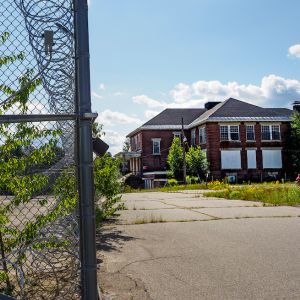 No deal. Laconia buyer misses deadline, state is out $21.5 million.
No deal. Laconia buyer misses deadline, state is out $21.5 million.
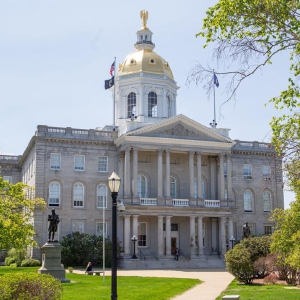 N.H. Educators voice overwhelming concerns over State Board of Education’s proposals on minimum standards for public schools
N.H. Educators voice overwhelming concerns over State Board of Education’s proposals on minimum standards for public schools
 Matt Fisk will serve as next principal of Bow High School
Matt Fisk will serve as next principal of Bow High School
 High schools: Coe-Brown softball wins 5th straight, Concord’s McDonald pitches first varsity win, Tide’s Doherty scores 100th career point
High schools: Coe-Brown softball wins 5th straight, Concord’s McDonald pitches first varsity win, Tide’s Doherty scores 100th career point
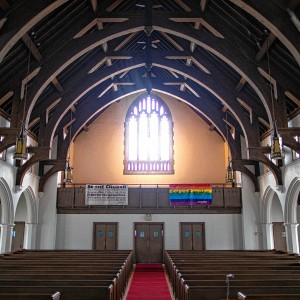 Construction of housing project in former Church to begin with parking dispute in the rearview
Construction of housing project in former Church to begin with parking dispute in the rearview
New Hampshire’s PFAS Rebate Program is thought to be the first of its kind in the country. Those utilizing it are primarily private well users that weren’t included in the Saint-Gobain Performance Plastics consent decree – a designated area, as part of an agreement with the state, where the company is providing permanent clean water solutions to approximately 1,000 properties, located in portions of Bedford, Hudson, Litchfield, Londonderry, and Merrimack.
In that sense, PFAS advocates have argued the consent decree does not fully encompass the scope of contamination attributed by the state to Saint-Gobain, though not legally attributed.
The state’s Department of Environmental Services has said that if the Environmental Protection Agency’s recently proposed PFAS standards go into effect, they expect an influx of people will utilize the rebate program.


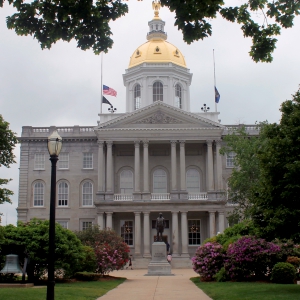 Charities will not have to pay rent to casinos under new law
Charities will not have to pay rent to casinos under new law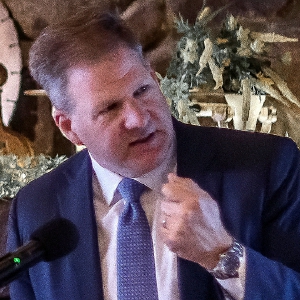 Sununu says he’ll support Trump even if he’s convicted
Sununu says he’ll support Trump even if he’s convicted NH mayors want more help from state on homelessness prevention funds
NH mayors want more help from state on homelessness prevention funds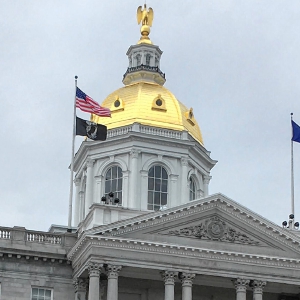 Two democrats with parallel views run for same State Senate seat
Two democrats with parallel views run for same State Senate seat
